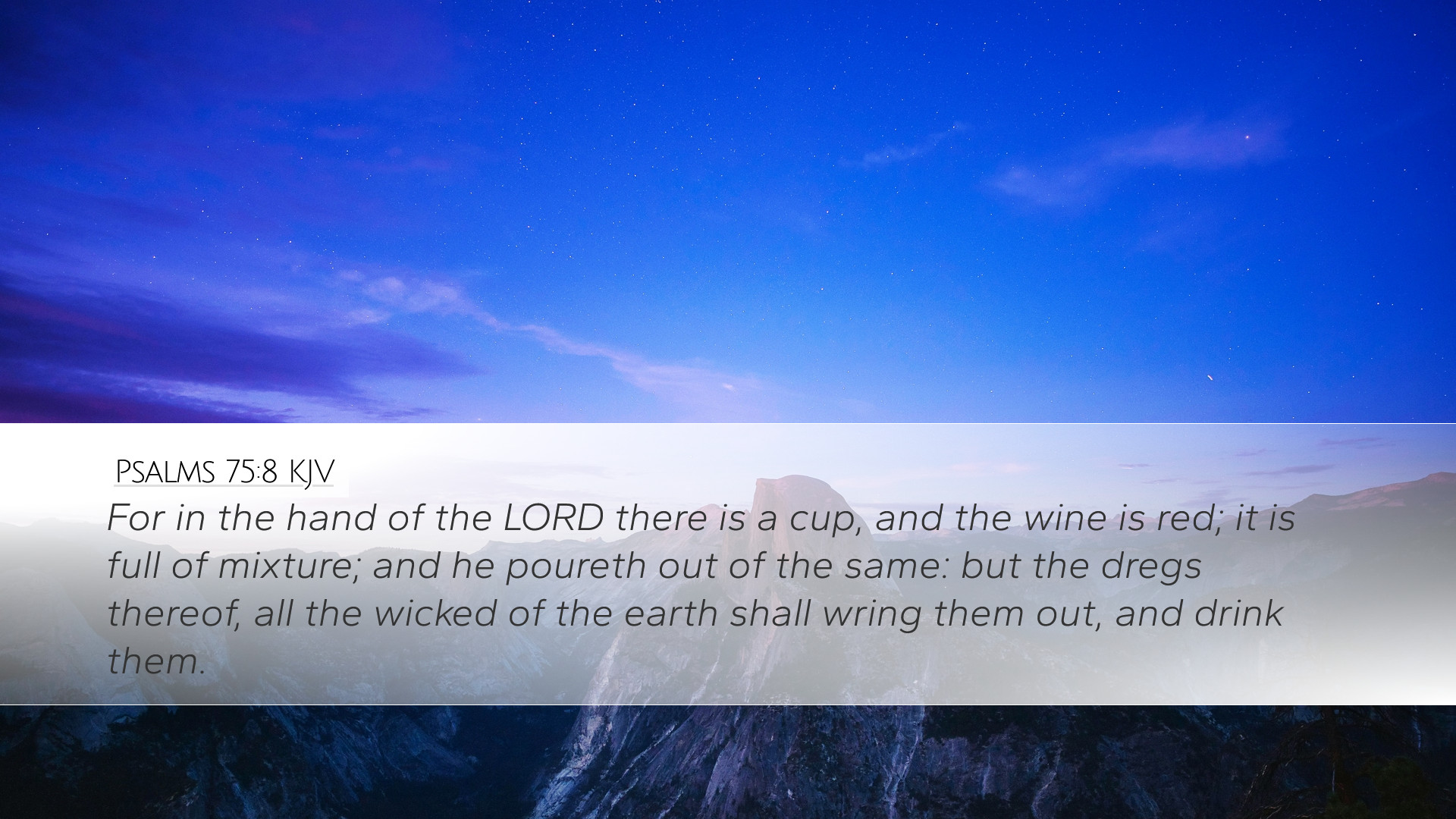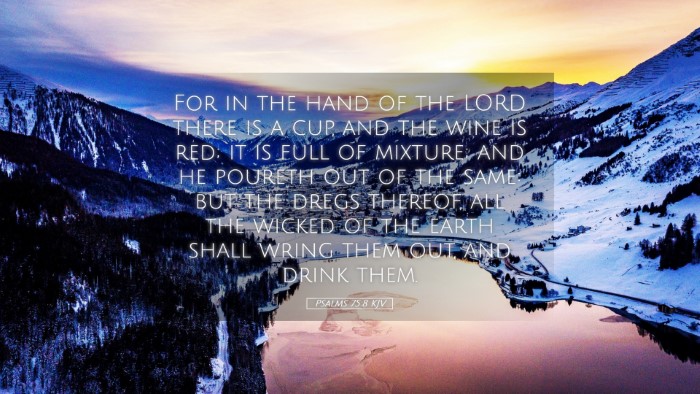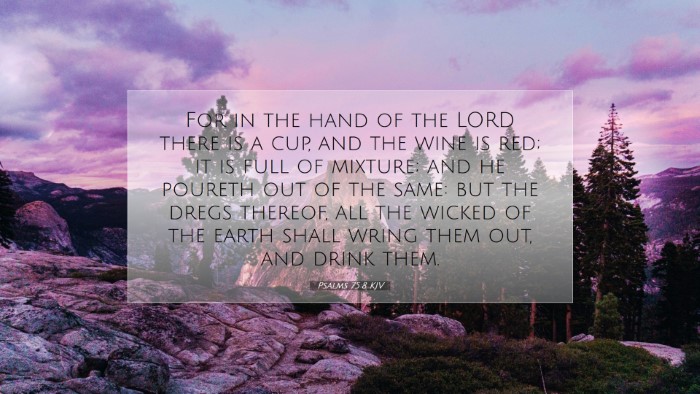Commentary on Psalms 75:8
Verse: "For in the hand of the LORD there is a cup, and the wine is red; it is full of mixture; and he poureth out of the same: but the dregs thereof, all the wicked of the earth shall wring them out, and drink them."
Introduction
This verse is rich with imagery and meaning, portraying God's sovereign control over the world and His justice towards the wicked. The cup represents divine judgment, a theme often found in the Psalms and prophetic literature.
Historical Context
The Psalms were primarily written in ancient Israel, focusing on worship and reflection on God's character and acts. Psalm 75 speaks to God's sovereignty during tumultuous times, likely addressing the people’s distress over injustice and wickedness around them.
Exegesis of Psalms 75:8
-
The Cup:
Matthew Henry interprets the "cup" as symbolizing God’s wrath and judgment. In biblical literature, the cup often denotes suffering or punishment that one must endure. The imagery evokes a sense of inevitability in facing the consequences of one's actions.
-
Wine is Red:
Albert Barnes notes that the "red wine" indicates the potency and seriousness of the judgment that must be faced. The wine's color might also suggest the bloodshed resulting from God's judgment against the wicked.
-
Full of Mixture:
Adam Clarke elaborates on this phrase, indicating that the mixture could signify the blend of various elements of divine wrath; the full cup points to the completeness of God’s judgment that is reserved for sinners. It is a reminder that the judgment will not be diluted or lessened.
-
Poured Out:
Henry emphasizes that God is the one who pours out this cup of wrath. This action confirms God's active role in governance and moral order, ensuring justice prevails in His creation. This metaphor resonates deeply, especially in the minds of believers who trust God’s ultimate justice.
-
The Dregs:
Barnes speaks of "the dregs," which represent the sediment left at the bottom of a cup. He asserts that wicked individuals will be left with the leftovers of God’s judgment, emphasizing that even to the very end, they will not escape the fullness of divine wrath.
-
Wicked of the Earth:
Clarke identifies the "wicked" as those who reject divine authority. The term 'earth' here refers to all creation, indicating that God’s justice is universal and inescapable. The imagery hints at the eventual divine retribution awaiting the unrighteous.
Theological Implications
This verse not only reveals God’s righteous judgment but also reflects on His sovereignty over all creation. It invites believers to trust in God's ultimate authority, especially in moments of injustice. The themes within this verse contribute to a deeper understanding of God’s character as both just and sovereign.
Practical Applications
- Trust in God’s Justice: Believers are encouraged to surrender their concerns to God, trusting that He will address the injustices of the world in His timing.
- Awareness of the Consequences of Sin: This verse serves as a reminder of the seriousness of sin and the eventual consequences that await those who choose a path away from righteousness.
- Comfort amidst Suffering: For Christians facing trials, this passage provides assurance that God is sovereign over their circumstances, and He will enact justice.
- Call to Righteousness: It stands as a call for Christians to examine their lives, reminding them to pursue holiness and refrain from the ways of the wicked.
Conclusion
Psalms 75:8 is a profound meditation on the nature of divine judgment and the assurance of God's ultimate sovereignty. Through the lens of this verse, believers gain a clearer understanding of the seriousness of sin, the need for accountability, and the hope that justice will be served. As pastors, students, and theologians engage with this text, they are invited to reflect deeply on the implications for personal faith and community witness.


